Navigation
Install the app
How to install the app on iOS
Follow along with the video below to see how to install our site as a web app on your home screen.
Note: This feature may not be available in some browsers.
More options
You are using an out of date browser. It may not display this or other websites correctly.
You should upgrade or use an alternative browser.
You should upgrade or use an alternative browser.
Coronavirus disease (COVID-19) 2020
- Thread starter briztoon
- Start date
- Tagged users None
- Mar 20, 2016
- 2,398
- 4,077
- AFL Club
- Brisbane Lions
Actually had a guy a work start talking to me the other day how it was man made virus, because the structure of it doesn't look natural etc etc
Just had to walk away. No point engaging in that conversation.
And yes, the same person a month or two ago was firmly in the camp that it is a global conspiracy & coverup & 5G is what is making us sick.
Just had to walk away. No point engaging in that conversation.
Not an Essendon supporter by any chance?

Part of it is to feel superior, part of it is because it fits a convenient opinion for them to have.
Good to see you dropping in on the Main Board to fight the good fight

- Sep 4, 2018
- 862
- 1,207
- AFL Club
- Brisbane Lions
- Other Teams
- AFL
Surprised how many tin foil hat wearers there are actually amongst us, be alert.
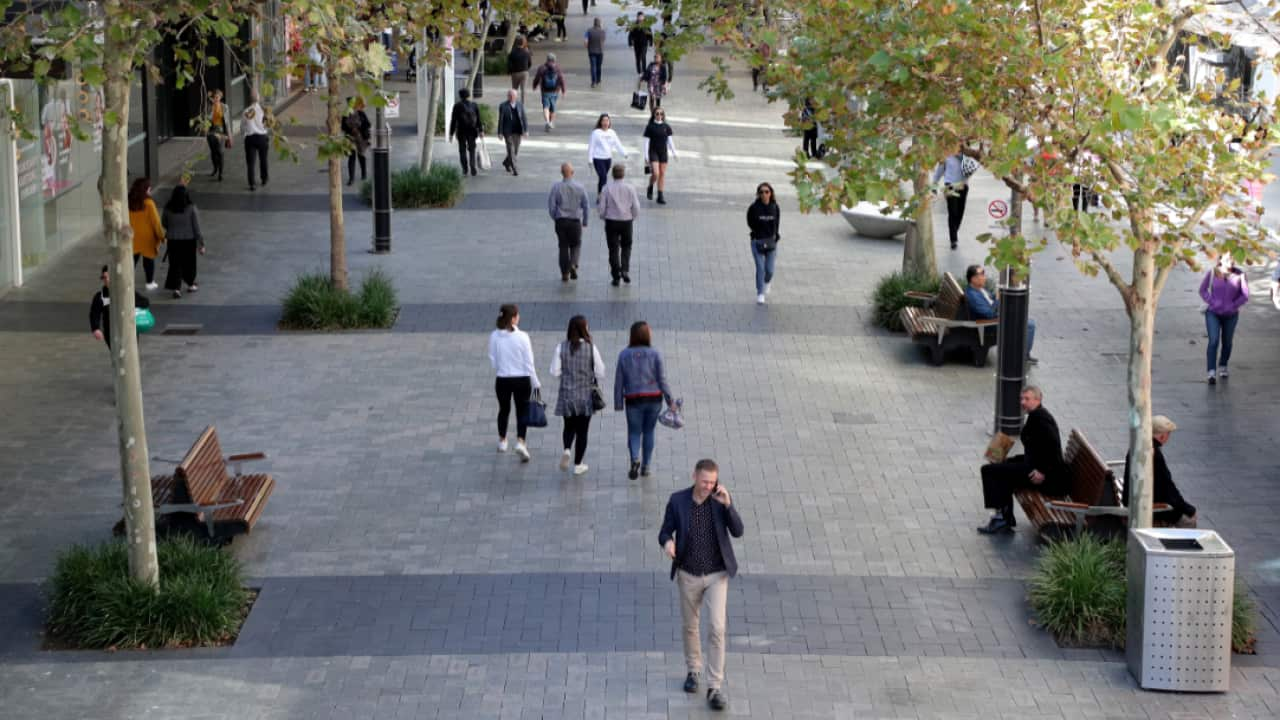
One in eight Australians believe 5G is spreading coronavirus, poll shows
New polling shows one in eight Australians buy into conspiracy theories coronavirus is linked to 5G, with nearly half saying the virus is from a Chinese lab.www.sbs.com.au
No one should have too much faith in these polls. The article mentions that 1073 people were involved, doesn’t mention what they were asked, doesn’t mention where in the country they’re from. Looks like one of those media fluff pieces.
- Mar 20, 2016
- 2,398
- 4,077
- AFL Club
- Brisbane Lions
This article speaks to me of how the near future looks for all society, let alone AFL. Seems like full stadiums might not be possible for many years, or decades.
"The fastest vaccine ever developed was for mumps. It took four years."
"A chief concern is that coronaviruses do not tend to trigger long-lasting immunity."
"If the natural infection doesn’t give you that much immunity except when it’s a severe infection, what will a vaccine do?"
"Another serious concern is “antibody-induced enhancement” where the antibodies produced by a vaccine actually make future infections worse."
So, is the virus here to stay?
The simple answer is: yes.
How will we live with the virus?
People will have to adapt – and life will change. Heymann says we will have to get used to extensive monitoring for infections backed up by swift outbreak containment. People must play their part too, by maintaining hand washing, social distancing and avoiding gatherings, particularly in enclosed spaces.
David Heymann, who led the response of the World Health Organization (WHO) to the Sars epidemic.
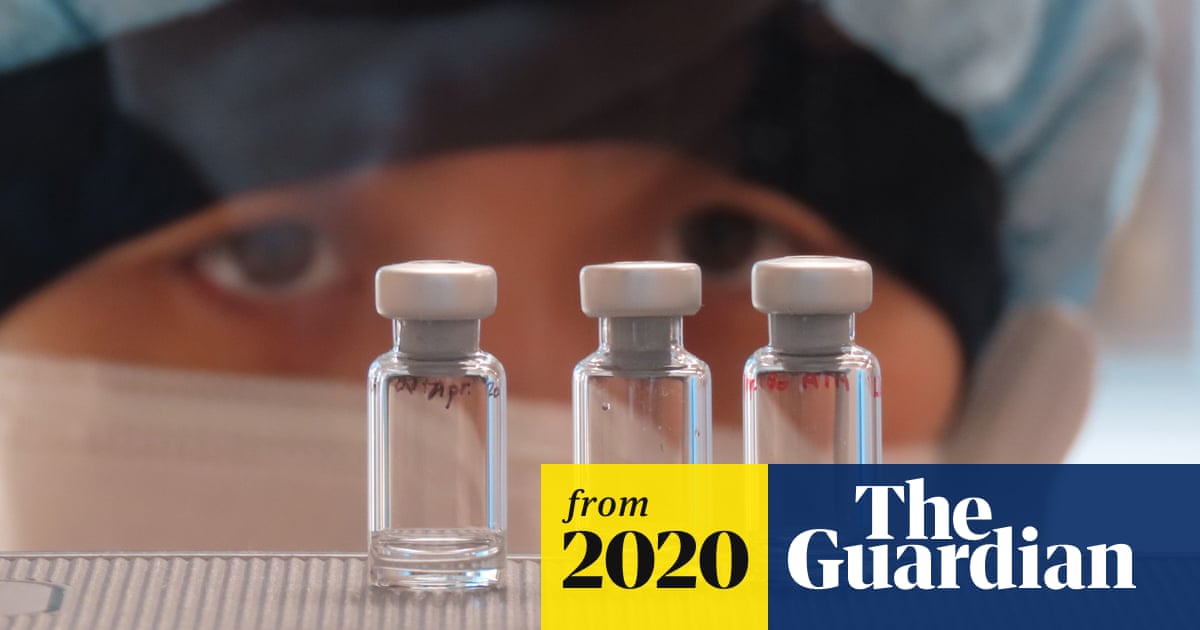
 www.theguardian.com
www.theguardian.com
"The fastest vaccine ever developed was for mumps. It took four years."
"A chief concern is that coronaviruses do not tend to trigger long-lasting immunity."
"If the natural infection doesn’t give you that much immunity except when it’s a severe infection, what will a vaccine do?"
"Another serious concern is “antibody-induced enhancement” where the antibodies produced by a vaccine actually make future infections worse."
So, is the virus here to stay?
The simple answer is: yes.
How will we live with the virus?
People will have to adapt – and life will change. Heymann says we will have to get used to extensive monitoring for infections backed up by swift outbreak containment. People must play their part too, by maintaining hand washing, social distancing and avoiding gatherings, particularly in enclosed spaces.
David Heymann, who led the response of the World Health Organization (WHO) to the Sars epidemic.

Why we might not get a coronavirus vaccine
Politicians have become more cautious about immunisation prospects. They are right to be
dlanod
Moderator
- Sep 14, 2006
- 52,399
- 81,190
- AFL Club
- Brisbane Lions
- Other Teams
- GWS; CCMariners; NQCowboys; Ravens
- Moderator
- #1,781
I think that's overstating things for a number of reasons.
1) There wasn't the pressing need combined with technological advances that we have today. Vaccines really could be out in the next twelve months. Historic examples aren't particularly relevant.
2) While coronaviruses might not trigger long lasting immunity, that's a) not the same as a vaccine (nasal passage vs bloodstream), and b) long lasting immunity isn't the be all and end all - yearly Covid 19 vaccines will allow us to reach the equivalent of herd immunity without the same mass deaths required without a vaccine.
1) There wasn't the pressing need combined with technological advances that we have today. Vaccines really could be out in the next twelve months. Historic examples aren't particularly relevant.
2) While coronaviruses might not trigger long lasting immunity, that's a) not the same as a vaccine (nasal passage vs bloodstream), and b) long lasting immunity isn't the be all and end all - yearly Covid 19 vaccines will allow us to reach the equivalent of herd immunity without the same mass deaths required without a vaccine.
- Mar 20, 2016
- 2,398
- 4,077
- AFL Club
- Brisbane Lions
Whilst I do respect you a lot dlanod you provide no quotes, no references and no qualifications as an epidemiologist so I will stick with
David L. Heymann
Assistant Director-General - Health Security and Environment
Representative of the Director-General for Polio Eradication

Dr David Heymann is the Assistant Director-General for Health Security and Environment and Representative of the Director-General for Polio Eradication. Prior to this, from July 1998 until July 2003, Dr Heymann was Executive Director of the WHO Communicable Diseases Cluster. From October 1995 to July 1998, Dr Heymann was Director of the WHO Programme on Emerging and other Communicable Diseases, and prior to that he was the chief of research activities in the WHO Global Programme on AIDS. Before joining WHO, Dr Heymann worked for 13 years as a medical epidemiologist in sub-Saharan Africa on assignment from the US Centers for Disease Control and Prevention (CDC). Dr Heymann also worked for two years in India as a medical epidemiologist in the WHO Smallpox Eradication Programme.
Dr Heymann holds a B.A. from the Pennsylvania State University, an M.D. from Wake Forest University, a Diploma in Tropical Medicine and Hygiene from the London School of Hygiene and Tropical Medicine, and has completed practical epidemiology training in the two-year Epidemic Intelligence Service of CDC. In 2004 he received the American Public Health Association Award for Excellence and was named to the United States Institute of Medicine. In 2005 he was awarded a Welling Professorship at the George Washington University School of Public Health and the 2005 Donald Mackay medal by the American Society of Tropical Medicine and Hygiene. In 2007 he received the Heinz Award in the Human Condition category.
David L. Heymann
Assistant Director-General - Health Security and Environment
Representative of the Director-General for Polio Eradication

Dr David Heymann is the Assistant Director-General for Health Security and Environment and Representative of the Director-General for Polio Eradication. Prior to this, from July 1998 until July 2003, Dr Heymann was Executive Director of the WHO Communicable Diseases Cluster. From October 1995 to July 1998, Dr Heymann was Director of the WHO Programme on Emerging and other Communicable Diseases, and prior to that he was the chief of research activities in the WHO Global Programme on AIDS. Before joining WHO, Dr Heymann worked for 13 years as a medical epidemiologist in sub-Saharan Africa on assignment from the US Centers for Disease Control and Prevention (CDC). Dr Heymann also worked for two years in India as a medical epidemiologist in the WHO Smallpox Eradication Programme.
Dr Heymann holds a B.A. from the Pennsylvania State University, an M.D. from Wake Forest University, a Diploma in Tropical Medicine and Hygiene from the London School of Hygiene and Tropical Medicine, and has completed practical epidemiology training in the two-year Epidemic Intelligence Service of CDC. In 2004 he received the American Public Health Association Award for Excellence and was named to the United States Institute of Medicine. In 2005 he was awarded a Welling Professorship at the George Washington University School of Public Health and the 2005 Donald Mackay medal by the American Society of Tropical Medicine and Hygiene. In 2007 he received the Heinz Award in the Human Condition category.
- Thread starter
- #1,783
I just keep remembering a past discussion about potential vaccine development for coronavirus.I think that's overstating things for a number of reasons.
1) There wasn't the pressing need combined with technological advances that we have today. Vaccines really could be out in the next twelve months. Historic examples aren't particularly relevant.
2) While coronaviruses might not trigger long lasting immunity, that's a) not the same as a vaccine (nasal passage vs bloodstream), and b) long lasting immunity isn't the be all and end all - yearly Covid 19 vaccines will allow us to reach the equivalent of herd immunity without the same mass deaths required without a vaccine.
We haven’t been able to find a vaccine for the common cold or previous coronavirus.
My personal view is, if Victoria can sort it’s sh!t out, and Australia can effectively eradicate the virus, we’ll open most things up fully. But keep our international borders mostly closed.
- Mar 20, 2016
- 2,398
- 4,077
- AFL Club
- Brisbane Lions
I just keep remembering a past discussion about potential vaccine development for coronavirus.
We haven’t been able to find a vaccine for the common cold or previous coronavirus.
My personal view is, if Victoria can sort it’s sh!t out, and Australia can effectively eradicate the virus, we’ll open most things up fully. But keep our international borders mostly closed.
Why not seems to work for Nth Korea, without tourism and migration this country will wither on the vine.
- Thread starter
- #1,785
We’re not closing off trade. We’d just be stopping non-essential travel.Why not seems to work for Nth Korea.
And there would be mandatory, government monitored 2 weeks quarantine for anyone landing in Australia. So people will think long and hard about international travel for the foreseeable future.
PattyKwasagun
Norm Smith Medallist
Saucery & briztoon, have a look at this article from last weekend - it certainly seems to paint a different picture:
One Shot To Change The World
Few tweets from Peter Doherty on the matter too:
And re: the comment about not having a vaccine against the common cold yet, this seems to be the reason why:
One Shot To Change The World
There has even been debate about whether a vaccine is possible for COVID-19, given no human coronavirus vaccine has ever been produced.
"There’s one for chickens!" says (Peter) Doherty, betraying his veterinary origins. "My wife and I both worked on it about 50 years ago!" He laughs.
"But no, seriously, you hear this thing about ‘no vaccines for coronavirus’, but in fact they were making a lot of progress with both MERS and SARS vaccines.
The reason they didn’t go anywhere was basically because SARS burnt out, and although MERS still grumbles away, it only infects about 200 people a year.
There’s just no big impetus with that level of infection."
Few tweets from Peter Doherty on the matter too:
And re: the comment about not having a vaccine against the common cold yet, this seems to be the reason why:
- Mar 20, 2016
- 2,398
- 4,077
- AFL Club
- Brisbane Lions
We’re not closing off trade. We’d just be stopping non-essential travel.
And there would be mandatory, government monitored 2 weeks quarantine for anyone landing in Australia. So people will think long and hard about international travel for the foreseeable future.
Australia's third highest export is education, people need to come here for that. Fifth is travel, added together they make up 13% of our income. Thats a pretty big slice to just throw in the dumpster.
PattyKwasagun
Norm Smith Medallist
Also, the current UQ vaccine effort has produced more antibodies than recovered patients even have in their blood - so immunity would be higher than it is for recovered patients, which is already looking very high.
UQ COVID-19 vaccine shown to induce potent protective response in pre-clinical trials
UQ COVID-19 vaccine shown to induce potent protective response in pre-clinical trials
UQ project co-leader Professor Paul Young said the results were an excellent indication that the vaccine worked as expected.
“This is what we were hoping for, and it’s a great relief for the team given the tremendous faith placed in our technology by CEPI, Federal and Queensland Governments and our philanthropic partners,” Professor Young said.
“We were particularly pleased that the strength of the antibody response was even better than those observed in samples from COVID-19 recovered patients.”
- Mar 20, 2016
- 2,398
- 4,077
- AFL Club
- Brisbane Lions
Saucery & briztoon, have a look at this article from last weekend - it certainly seems to paint a different picture:
One Shot To Change The World
Few tweets from Peter Doherty on the matter toose
And re: the comment about not having a vaccine against the common cold yet, this seems to be the reason why:
The SMH article basically says we have so many people working on this we must prevail, whilst acknowledging:
"Even vaccines are not without problems. In the past, work on vaccines for other coronaviruses (such as MERS and SARS) has raised questions regarding the strength and longevity of vaccine-produced immunity; and about the negative impacts of a vaccine on the immune system. There has even been debate about whether a vaccine is possible for COVID-19, given no human coronavirus vaccine has ever been produced."
And as for Prof Doherty you do realise he is a veterinarian?
- Mar 20, 2016
- 2,398
- 4,077
- AFL Club
- Brisbane Lions
Also, the current UQ vaccine effort has produced more antibodies than recovered patients even have in their blood - so immunity would be higher than it is for recovered patients, which is already looking very high.
UQ COVID-19 vaccine shown to induce potent protective response in pre-clinical trials
Yes once again a University looking for funding releases positive findings, go figure.
PattyKwasagun
Norm Smith Medallist
The SMH article basically says we have so many people working on this we must prevail, whilst acknowledging:
"Even vaccines are not without problems. In the past, work on vaccines for other coronaviruses (such as MERS and SARS) has raised questions regarding the strength and longevity of vaccine-produced immunity; and about the negative impacts of a vaccine on the immune system. There has even been debate about whether a vaccine is possible for COVID-19, given no human coronavirus vaccine has ever been produced."
And as for Prof Doherty you do realise he is a veterinarian?
Sure, by initial training - but he's an immunologist (and quite a good one it is fair to say - not many end up with an immunology centre named after them).
What about Ian Frazer's comments in that article? You can hardly discredit him when it comes to vaccines.
I know there has been a great deal of vaccine scepticism and conspiracy, but essentially every major immunologist is in agreement that a vaccine is very likely with this virus. Timeframes are hard to tell and those speculating that it will happen this year certainly seem overly ambitious, but there are no reasons one shouldn't be possible.
The SMH article basically says we have so many people working on this we must prevail, whilst acknowledging:
"Even vaccines are not without problems. In the past, work on vaccines for other coronaviruses (such as MERS and SARS) has raised questions regarding the strength and longevity of vaccine-produced immunity; and about the negative impacts of a vaccine on the immune system. There has even been debate about whether a vaccine is possible for COVID-19, given no human coronavirus vaccine has ever been produced."
And as for Prof Doherty you do realise he is a veterinarian?
Veterinarians use and develop vaccines too FYI. It’s all the same science.
- Mar 20, 2016
- 2,398
- 4,077
- AFL Club
- Brisbane Lions
Sorry to have upset veterinarians out there, but still try to keep some perspective. Your optimism for a vaccine is disproportionate to the general consensus of epidemiologist out there, specialists in this field. I am happy to feel more positive about the chances of a vaccine that will wipe out CV19 like small pox, yet its long incubation period, coupled with the growing evidence that it can be recontacted within weeks, leads me believe we are just not getting our heads around how epoch changing this plague is.
Keays2myBeamas
All Australian
When there is disagreement amongst the experts, it reveals why it's not worth putting all your eggs in one expert's basket. It's good to hear what both Doherty, Heymann, Fraser, and others have to say.
Wrt to borders. Borders between some countries that are moving towards herd immunity are already opening up - there's no longer much point keeping them closed. (Air travel is different however, borders in Europe can open without air travel, as planes appear to be a fantastic way to spread a virus).
But of course, we are not a country moving towards herd immunity, or a country that can be reached in a car. Listening to some of the state premiers (Qld, SA and WA especially) they are not keen on opening borders to even NSW + VIC without an entire month of 0 active cases (and that won't happen for a long long while). So it seems the idea of welcoming tourists from Europe or America without a vaccine is entirely off the table. Probably the best we can hope for is that we will be stuck in a bubble with New Zealand, perhaps some Pacific Island nations, and perhaps South Korea, Singapore, Japan, Taiwan and Hong Kong.
Even if we wait the 2-3 years it will take for the virus to burn through everywhere else in the world, it will still linger around for quite a while. Given we are left with a 100% susceptible population, there's not a lot of room for us to manoeuvre. We've backed ourselves into a corner by doing so well at controlling the virus. If there's no vaccine, we may be forced to exist in relative isolation for years.
I apologise if I'm mulling over stuff that's already been said, I'm just trying to get it straight in my head, as I have an immense vested interest in seeing borders open asap. That's how I see it - does anyone see it differently?
Wrt to borders. Borders between some countries that are moving towards herd immunity are already opening up - there's no longer much point keeping them closed. (Air travel is different however, borders in Europe can open without air travel, as planes appear to be a fantastic way to spread a virus).
But of course, we are not a country moving towards herd immunity, or a country that can be reached in a car. Listening to some of the state premiers (Qld, SA and WA especially) they are not keen on opening borders to even NSW + VIC without an entire month of 0 active cases (and that won't happen for a long long while). So it seems the idea of welcoming tourists from Europe or America without a vaccine is entirely off the table. Probably the best we can hope for is that we will be stuck in a bubble with New Zealand, perhaps some Pacific Island nations, and perhaps South Korea, Singapore, Japan, Taiwan and Hong Kong.
Even if we wait the 2-3 years it will take for the virus to burn through everywhere else in the world, it will still linger around for quite a while. Given we are left with a 100% susceptible population, there's not a lot of room for us to manoeuvre. We've backed ourselves into a corner by doing so well at controlling the virus. If there's no vaccine, we may be forced to exist in relative isolation for years.
I apologise if I'm mulling over stuff that's already been said, I'm just trying to get it straight in my head, as I have an immense vested interest in seeing borders open asap. That's how I see it - does anyone see it differently?
Keays2myBeamas
All Australian
Sorry to have upset veterinarians out there, but still try to keep some perspective. Your optimism for a vaccine is disproportionate to the general consensus of epidemiologist out there, specialists in this field. I am happy to feel more positive about the chances of a vaccine that will wipe out CV19 like small pox, yet its long incubation period, coupled with the growing evidence that it can be recontacted within weeks, leads me believe we are just not getting our heads around how epoch changing this plague is.
Growing evidence that positive tests weeks after being cured appear to not be contagious. They are likely false positives caused by lingering dead virus cells.
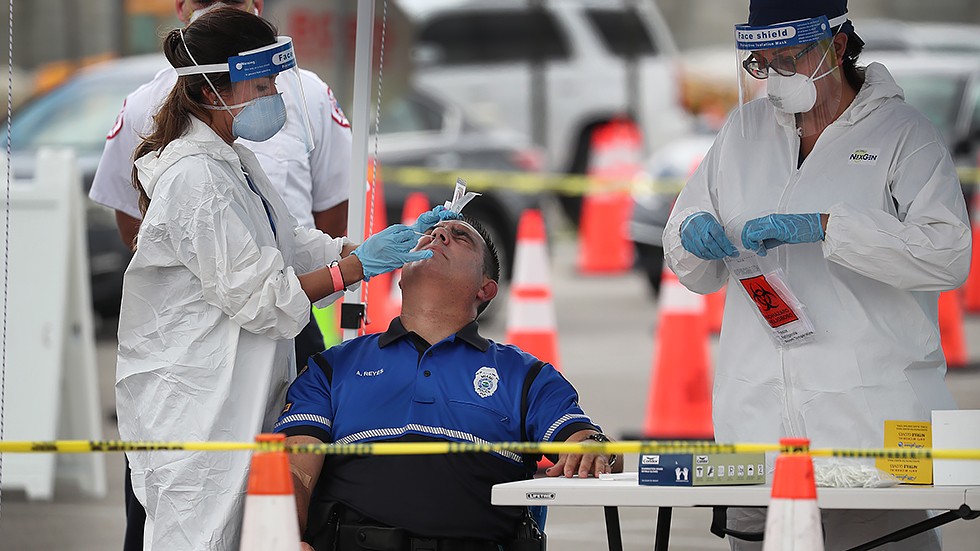
COVID-19 patients testing positive for second infection not contagious, study shows
Researchers in Korea found evidence that patients who test positive for COVID-19 a second time aren’t capable of infecting others, and may have neutralizing antibodies that protect them from …
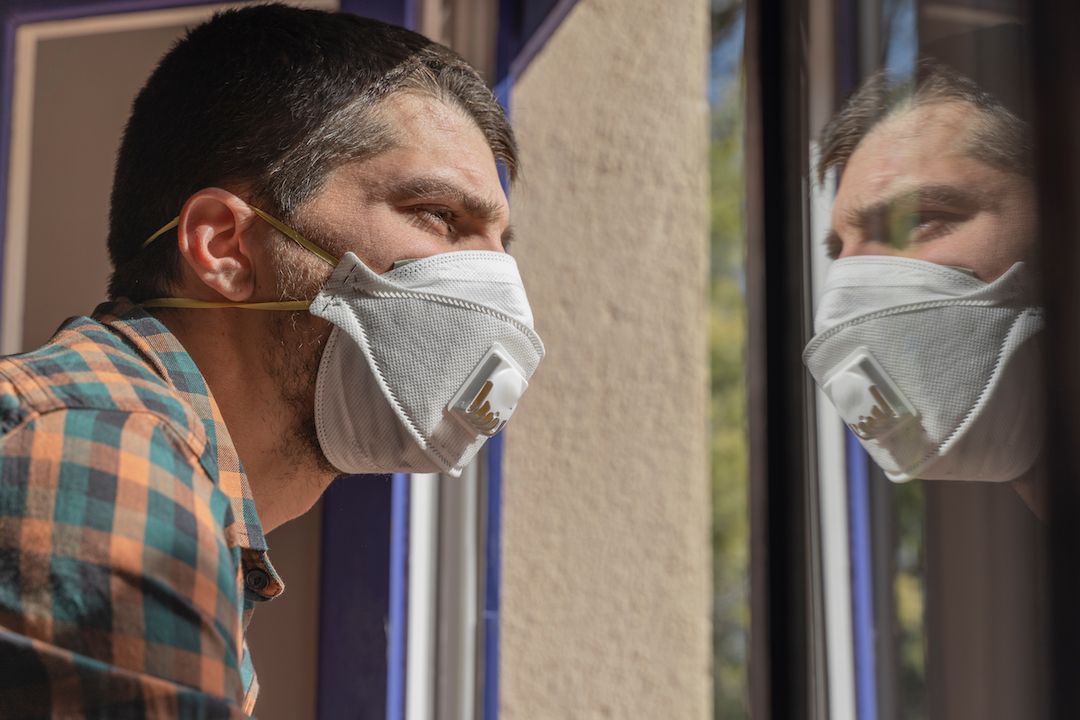
Recovered patients who tested positive for COVID-19 likely not reinfected
This phenomenon is likely due to the shortcomings of the coronavirus test, experts say
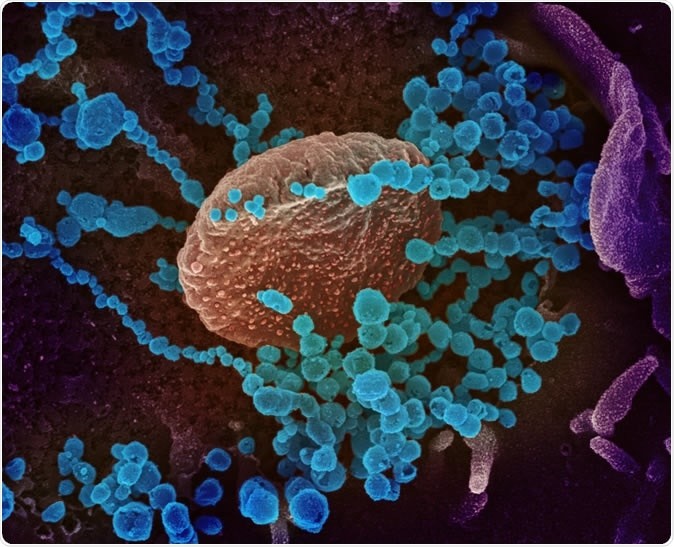
Dead virus fragments are causing COVID-19 reinfection false positives
The coronavirus disease (COVID-19) has ravaged across the globe, infecting a staggering 3.5 million people, and taking over 251,000 lives. One of the most significant concerns in this global pandemic is the possibility of reinfection as previous reports in South Korea and Japan show people...
- Mar 20, 2016
- 2,398
- 4,077
- AFL Club
- Brisbane Lions
When there is disagreement amongst the experts, it reveals why it's not worth putting all your eggs in one expert's basket. It's good to hear what both Doherty, Heymann, Fraser, and others have to say.
Wrt to borders. Borders between some countries that are moving towards herd immunity are already opening up - there's no longer much point keeping them closed. (Air travel is different however, borders in Europe can open without air travel, as planes appear to be a fantastic way to spread a virus).
But of course, we are not a country moving towards herd immunity, or a country that can be reached in a car. Listening to some of the state premiers (Qld, SA and WA especially) they are not keen on opening borders to even NSW + VIC without an entire month of 0 active cases (and that won't happen for a long long while). So it seems the idea of welcoming tourists from Europe or America without a vaccine is entirely off the table. Probably the best we can hope for is that we will be stuck in a bubble with New Zealand, perhaps some Pacific Island nations, and perhaps South Korea, Singapore, Japan, Taiwan and Hong Kong.
Even if we wait the 2-3 years it will take for the virus to burn through everywhere else in the world, it will still linger around for quite a while. Given we are left with a 100% susceptible population, there's not a lot of room for us to manoeuvre. We've backed ourselves into a corner by doing so well at controlling the virus. If there's no vaccine, we may be forced to exist in relative isolation for years.
I apologise if I'm mulling over stuff that's already been said, I'm just trying to get it straight in my head, as I have an immense vested interest in seeing borders open asap. That's how I see it - does anyone see it differently?
No this is a good post. Herd immunity requires between 70-90% of the population to have contracted the virus? Even in Sweden, who never enacted any lock down, believe that only 7.3 % of the population in the capital Stockholm have contracted the disease. Your point about our population being nearly 100% susceptible is frighteningly true. This is just the beginning.
PattyKwasagun
Norm Smith Medallist
No this is a good post. Herd immunity requires between 70-90% of the population to have contracted the virus? Even in Sweden, who never enacted any lock down, believe that only 7.3 % of the population in the capital Stockholm have contracted the disease. Your point about our population being nearly 100% susceptible is frighteningly true. This is just the beginning.
I’m a big believer in the sentiment that cynicism always comes dressed as realism.
I know your belief is that you have a realistic perspective on the situation and where we’re going, but it seems way out of step with every expert opinion & every nation’s approach.
- Mar 20, 2016
- 2,398
- 4,077
- AFL Club
- Brisbane Lions
Growing evidence that positive tests weeks after being cured appear to not be contagious. They are likely false positives caused by lingering dead virus cells.

COVID-19 patients testing positive for second infection not contagious, study shows
Researchers in Korea found evidence that patients who test positive for COVID-19 a second time aren’t capable of infecting others, and may have neutralizing antibodies that protect them from …thehill.com

Recovered patients who tested positive for COVID-19 likely not reinfected
This phenomenon is likely due to the shortcomings of the coronavirus test, experts saywww.livescience.com

Dead virus fragments are causing COVID-19 reinfection false positives
The coronavirus disease (COVID-19) has ravaged across the globe, infecting a staggering 3.5 million people, and taking over 251,000 lives. One of the most significant concerns in this global pandemic is the possibility of reinfection as previous reports in South Korea and Japan show people...www.news-medical.net
Not really sure of the veracity of the websites you have quoted, never seen them before.

13 USS Roosevelt Sailors Test Positive For COVID-19, Again
They had been thought to be cleared of the virus, which infected hundreds of crew members on the U.S. aircraft carrier in recent weeks. The sailors are receiving medical support on Naval Base Guam.

13 Sailors On The USS Theodore Roosevelt Have Tested Positive For Covid-19 A Second Time
All the infected sailors have been removed from the ship and are in isolation in Guam, where the Roosevelt is docked.
 www.forbes.com
www.forbes.com
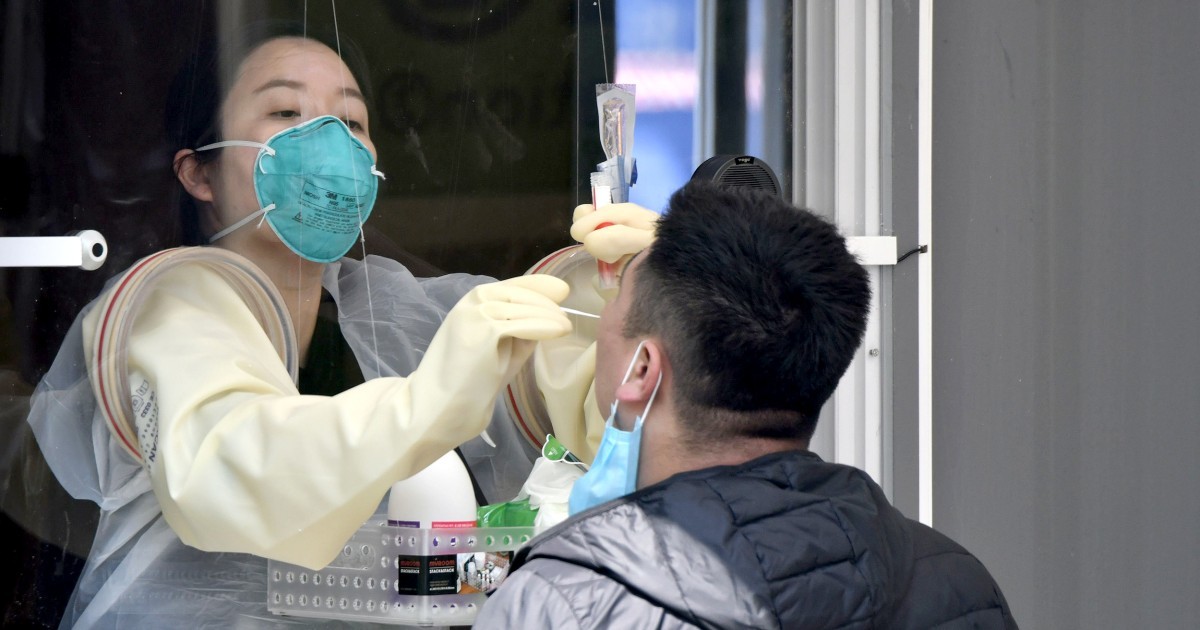
Some have tested positive for COVID-19 after recovering. What does that mean?
There is no conclusive evidence that people can become reinfected with COVID-19. But researchers are following thousands of patients to be sure.
Look all say they don't know. THEY DON'T KNOW. For me that's an issue until they do know.
- Mar 20, 2016
- 2,398
- 4,077
- AFL Club
- Brisbane Lions
I’m a big believer in the sentiment that cynicism always comes dressed as realism.
I know your belief is that you have a realistic perspective on the situation and where we’re going, but it seems way out of step with every expert opinion & every nation’s approach.
Sorry but I think you are way out of step with what the science is saying, and as for nations they all just want one thing, back to business.
- Thread starter
- #1,800
Actually my wife and I were just discussing this, people don’t NEED to come here for education.Australia's third highest export is education, people need to come here for that. Fifth is travel, added together they make up 13% of our income. Thats a pretty big slice to just throw in the dumpster.
I may have mentioned once or twice my wife works in education, primarily research, but also teaches post grad students.
Approximately 50% percent of her students are international students. But she doesn’t see most of them in class, as most do their course via online, even though they are here in Australia.
For two semesters she teaches a course where a large number of her students are based in Singapore and do not come to Australia, as her university has a partnership with a Singaporean university.
Now while most of our universities don’t currently offer full online degrees, many could.
I’m not throwing those industries in the dumpster.
What I have mentioned has been discussed at many levels of government and businesses, because, until a vaccine is found, our society can’t go in to a full lockdown mode every time a cluster appears.
And that’s what is being discussed if the borders are opened, because how do we contain multiple outbreaks in an open, functioning society?
So open Australia up for Australians, or keep closing the nation for months on end every time infection numbers reach a tipping point?
Hopefully all those Australian tourist dollars that went overseas before the outbreak now get spent here.




